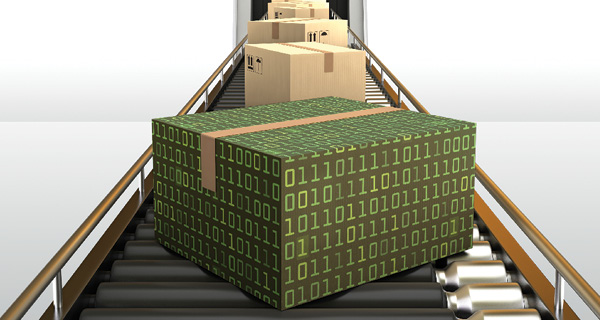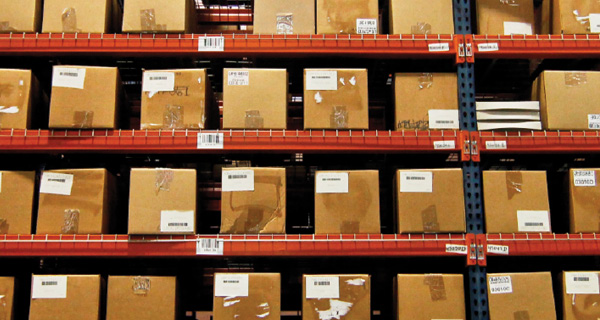Articles
Logistics I.T.

Untangling the Complications of Free Trade Agreements
Q: Why should companies consider trade agreements when looking to find the best sourcing option? A: Companies need to factor into their sourcing decisions the opportunities provided by free trade agreements if they are to truly reduce lead times and take advantage of cost savings available throughout their supply chain. By incorporating trade agreements into […]
Read More
Shipment Monitoring Technology: Picking Up the Signals
From basic to complex, tracking devices give shippers the power to locate and secure cargo at any point in the supply chain.
Read MoreSelecting a Bar-code Scanning System
Bar-code tools can rapidly streamline inventory processing, but choosing the proper system requires examining the current technology, understanding the types of providers, and reviewing internal processes to match needs with a solution. Brian Sutter, director of marketing at Wasp Barcode Technologies, offers these tips for navigating the process. 1. Take a test drive. Training staff […]
Read More
Global Trade in the Key of GTM
When orchestrating international shipments, global trade management solutions help trading partners sing the same tune.
Read More
Cloud-based System Furnishes Supply Chain Visibility
Faced with long lead times and potential production delays, Badcock Home Furniture & More sets the table for supply chain efficiency with a cloud-based global logistics solution.
Read MoreBoosting Warehouse Productivity
Achieving warehouse productivity goals such as reducing picking times and increasing throughput rates can be challenging. Chris Castaldi, director of business development at Carlstadt, N.J.-based materials handling systems integrator W&H Systems, offers these tips for improving warehouse productivity. 1. Use automated picking operations. Pick-to-voice or pick-to-light systems speed picking and reduce errors by quickly providing […]
Read More
Using Operational Analytics to Achieve a Digitized, Visible Supply Chain
To assure a succcessful future, companies must add value to their customers and organizations, and drive competitive advantage. The best way to achieve this is by developing a system based on operational analytics. Operational analytics come from analyses done on the fly as part of standard business processes. Planning, inventory management, and control are examples […]
Read More
Materials Handling Meets Big Data
By studying warehouse equipment and labor performance data, you can help your operations achieve top marks for productivity, safety, and equipment utilization.
Read More
7 Steps to Selecting a WMS
In the market for a warehouse management system? The right solution can help improve order fulfillment, boost inventory visibility, and automate data collection. Follow these simple steps for choosing a WMS, and you’ll soon be on your way to an optimized warehouse operation.
Read More
Drafting a New Route Planning System
Molson Coors Canada’s new delivery planning system taps routing, pallet building, and truck loading functionality to optimize shipment flow.
Read More
Plan, Write, and Implement a Successful Software Project
Thankfully, most software projects succeed. Look around, virtually everything is running on software, and it all (pretty much) works. Maybe an out-of-the-box solution will work, or maybe you need to buy and modify that out-of-the-box software to suit your needs. Or maybe you will write your own. The worry, of course, is that software projects […]
Read More
Transportation Planning – A Manual Headache Or an Optimized Dream
Fluctuating fuel prices, Hours of Service rules, and other factors make optimized routing and scheduling vital.
Read More
Supply Chain Analytics: Overcoming Obstacles to Stay Ahead of Your Competitors
Leveraging data analysis and technology integration can generate powerful insights to transform today’s supply chains. Companies continue to struggle, however, with the best techniques to get the right information in the hands of their decision-makers. Many manufacturers and shippers report their organization is not aligned around key performance metrics. Simply including analytics in your strategy […]
Read More
Trends—January 2014
Getting Demand Forecasting in Hand In the demand-driven logistics domain, forecasting is king. Companies that are best able to predict sputters and spikes, then react and execute against those signals, will gain a competitive advantage. But given today’s market uncertainty—the economy, consumer purchasing power and appetite for new products, sliding holiday seasonality, and emerging omni-channel […]
Read More
Achieving True Mobility in Supply Chain and Logistics Operations
Mobile technology is pervasive and disruptive. It has made huge strides in the consumer market. But, when we look at mobile technology adoption in enterprises, it is still in its infancy. True mobile technology means commonly available smartphones and tablets that run standard operating systems such as iOS, Android, and Windows. There are a number […]
Read More
A New Paradigm in Vendor Partner Management
Leading companies are moving from traditional vendor compliance to vendor partner management — a competitive differentiator in how companies manage their inbound purchase orders (POs) and transportation to increase sales and customer service. Historically, vendor compliance has revolved around chargebacks — the practice of making deductions from the purchase price when vendors break an agreed-upon […]
Read More
Pharmaceutical Supply Chain Tackles Track-and-Trace Challenges
New legislation is in the works to prevent counterfeit medicines from entering the pharmaceutical supply chain. These random mixtures of harmful toxic substances are not only illegal; they are extremely dangerous to patients and damaging to the reputations of legitimate pharmaceutical companies. Increased Internet sales, widespread demand for generic drugs, and drug shortages in many […]
Read More
Seeking Innovation? Stop IT Overspending
Today’s supply chain is one of the most exciting arenas for business innovation. Mobility, cloud computing, big data, and new production techniques such as 3-D printing are breaking down barriers between retailers, consumers, manufacturers, and suppliers. The technology trends driving supply chain innovation are also driving IT costs through the roof. Eighty-nine percent of IT […]
Read More
Trends—December 2013
Predictive Analytics: A Sure Thing Here’s a forecast you can count on: Cloud-based predictive analytics offerings are increasingly available to more companies of all sizes. More than 90 percent of the 350 companies polled in a new survey conducted by California-based research firm Decision Management Solutions say they expect to deploy predictive analytics functionalities within […]
Read More
Tapping Technology To Improve Lean Warehouses
Lean is traditionally thought of as a methodology for using visual signals, optimized layouts, and streamlined processes to improve material and information flow. But technology also plays a critical role in Lean operations, especially for companies managing global supply chains. Implementing forecasting, advanced planning and scheduling, distribution requirements planning, and transportation and warehouse management systems […]
Read More